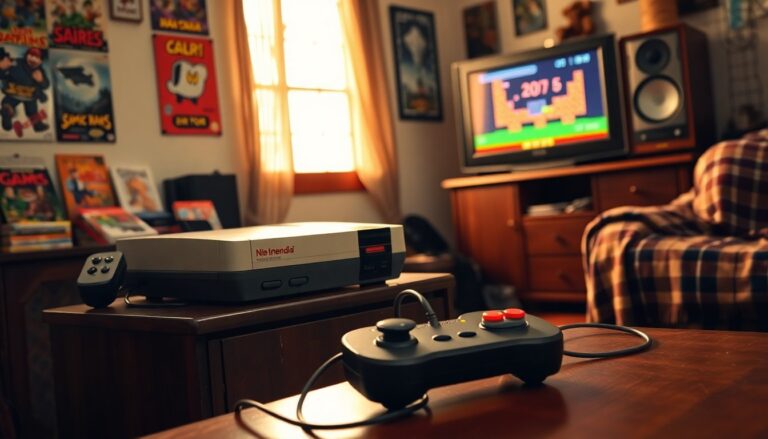Argomenti trattati
The world of video gaming is constantly evolving, yet a significant trend has emerged: the resurgence of retro gaming consoles. These devices, reminiscent of the golden age of gaming, appeal to both nostalgic adults and younger gamers. This article explores the reasons behind this phenomenon, highlighting how retro consoles merge nostalgia with modern gaming innovations.
The charm of nostalgia
Nostalgia is a powerful emotion that influences consumer behavior. For many adults, gaming is intertwined with childhood memories—Saturday afternoons spent in front of a Nintendo Entertainment System or Sega Genesis. Retro gaming consoles evoke a sense of sentimental value and familiarity that contemporary consoles may lack. This emotional connection drives older generations to seek out these systems, not only for play but also as a means to relive cherished moments.
Additionally, the design of these consoles appeals to the aesthetics of simpler times. With their pixelated graphics and basic soundtracks, these systems remind players of the roots of video gaming. In an age where games can be overly complex, the simplicity of retro games offers a refreshing alternative. Titles like Super Mario Bros. and Pac-Man provide straightforward gameplay that is both engaging and accessible to a wider audience.
The rise of mini consoles
In response to the growing interest in retro gaming, major companies have launched mini consoles that come pre-loaded with classic games. For instance, the NES Classic Edition and the Sega Genesis Mini have garnered enthusiasm due to their inclusion of fan-favorite titles. These compact devices not only simplify the gaming experience but also introduce younger generations to the classics that shaped the industry.
Moreover, these mini consoles have become collector’s items. Limited edition releases generate excitement and, at times, even frenzy among fans eager to own a piece of gaming history. This collector culture complements the nostalgia factor, fostering a dedicated community centered around retro gaming.
Modern adaptations and innovations
While nostalgia plays a crucial role, the success of retro gaming consoles is also attributed to modern adaptations that enhance the gaming experience. Companies are not merely re-releasing old hardware; they are incorporating modern technology to ensure these consoles remain viable in today’s market. For example, many retro consoles now support HD output, allowing classic games to be played on modern televisions with improved visuals.
Additionally, some retro consoles have integrated online functionalities, enabling players to connect with others worldwide. This innovation bridges traditional gaming and the current digital landscape, allowing gamers to compete and collaborate in ways previously impossible, thereby enriching the overall experience.
The role of indie developers
Another key factor contributing to the retro gaming revival is the rise of indie developers. Driven by a passion for classic gaming, these creators often develop new titles that mimic the style and mechanics of retro games. The success of games like Celeste and Shovel Knight illustrates how modern developers draw inspiration from the past, introducing new audiences to the charm of retro-style gameplay.
Furthermore, many indie games pay homage to classic franchises while incorporating innovative mechanics, creating a bridge between old and new. This blend of nostalgia and modernity satisfies long-time fans and attracts younger players who may not have experienced the original titles.
The future of retro gaming
Looking towards the future, the appeal of retro gaming consoles is expected to grow. The combination of nostalgia, modern technology, and the creative innovations from indie developers ensures these beloved systems remain relevant. Additionally, the community surrounding retro gaming fosters a sense of belonging, encouraging players to share their experiences and memories.
Nostalgia is a powerful emotion that influences consumer behavior. For many adults, gaming is intertwined with childhood memories—Saturday afternoons spent in front of a Nintendo Entertainment System or Sega Genesis. Retro gaming consoles evoke a sense of sentimental value and familiarity that contemporary consoles may lack. This emotional connection drives older generations to seek out these systems, not only for play but also as a means to relive cherished moments.0

